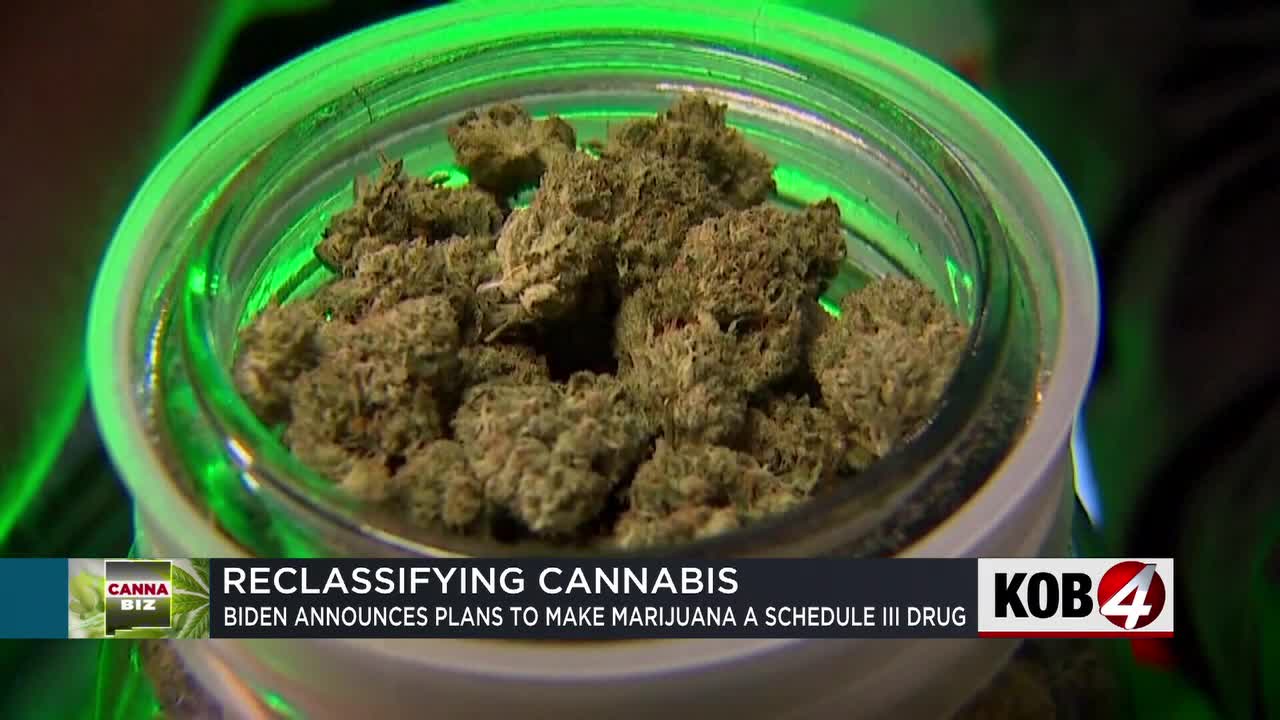New Mexico cannabis industry braces for federal rescheduling

ALBUQUERQUE, N.M. – In a historic announcement, President Joe Biden says it is time for the feds to rethink how dangerous marijuana really is. His administration is downgrading cannabis in its drug classification.
It’s a monumental decision that will impact many areas of the legal marijuana industry, including in New Mexico.
“It’s a historic, monumental policy shift and how the federal government treats cannabis. But it’s kind of bittersweet, too, it doesn’t go far enough,” said Ben Lewinger, executive director of the New Mexico Cannabis Chamber of Commerce.
Lewinger says it’s about time the feds catch up with the American people.
“We know that most Americans today want cannabis to be legal, to be regulated, similar to alcohol or tobacco,” said Lewinger.
He says Biden’s plan to reschedule marijuana isn’t doing that.
“It’s kind of a giveaway to the Big Pharma,” Lewinger said.
Marijuana, or cannabis, is currently a Schedule 1 drug. It’s considered the worst of the worst, alongside other drugs like heroin.
The Biden administration wants to reclassify it as a Schedule 3 drug, meaning it’s still concerning, but there are some recognizable medical benefits.
“Schedule 3 includes pharmaceuticals, like Klonopin, like Tylenol with codeine, so still highly regulated pharmaceutical products. We do know that there will be immediate relief in the form of cannabis businesses not having to deal with 280E, which is an IRS tax code that applies only to Schedule 1 substances. What we don’t know is whether or not being regulated by the FDA and the DEA would incur additional costs,” said Lewinger.
Lewinger admits this is uncharted territory for the cannabis industry. A spokesperson with the Cannabis Control Division says they are just beginning to digest the draft rule, and figuring out how this will impact New Mexico’s cannabis industry.
But Lewinger says there are clues about what happens to Schedule 3 drugs.
“It presents a pharmaceutical model for states that have legalized cannabis,” Lewinger said. “I think that having to have a prescription for cannabis may not be off the table. I think that there’s going to be lots of companies rushing to develop IP to get trademarks on different cannabinoids.”
He predicts the change could also allow New Mexico to export cannabis products, potentially providing another boost to the booming industry.
“It’s a really exciting time for our industry in New Mexico right now,” said Lewinger.
Recreational sales topped $38 million last month, just shy of a record $39 million the month before.
Lewinger says the rescheduling process could take years to complete, so don’t expect any noticeable industry changes anytime soon. He says don’t expect any more major shifts for a while.
“My feeling is that shifting from Schedule 1 to Schedule 3 is actually going to put off real descheduling for another decade or even longer,” said Lewinger.